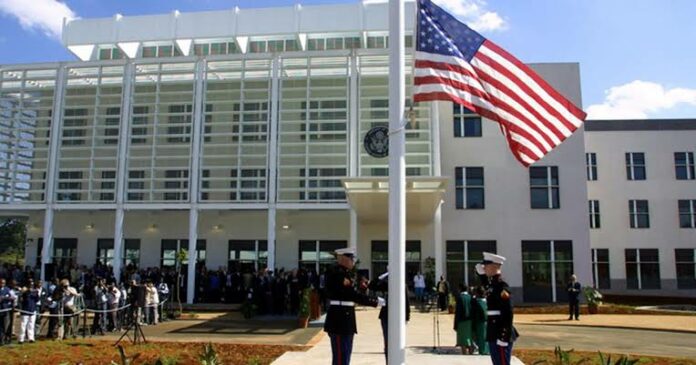The number of Kenyans relocating to the Diaspora is presently increasing owing to the high unemployment rate in the country, among other reasons.
The United States of America is one of the countries where Kenyans looking for greener pastures relocate to.
According to a 2020 survey by the United Nations Department of Economic and Social Affairs (UNDESA), the United States of America has the highest number of Kenyan migrants (157,000), followed by the United Kingdom (139,000).
Among the reasons why many Kenyans move to the US include the search for employment opportunities, educational purposes, or to reunite with family.
However, it’s important to note that moving to the US is a process, and anyone seeking to enter the country must first obtain the B1/B2 U.S. visa, which is placed in the traveler’s passport.
Generally, the B-1 visa is for people traveling to the US for business or education purposes, while the B-2 visa is for travel that is recreational in nature, including tourism, visits with friends or relatives, medical treatment, and activities of a fraternal, social or service nature.
US hikes visa application fees to between Sh. 25,000 and Sh. 42,000 for Kenyans
Often, the B-1 and B-2 visas are combined and issued as one visa: the B1/B2. To apply for a B1/B2 visa, you must submit the following:
- A Nonimmigrant Visa Electronic Application Form.
- A valid passport. It must be valid for at least 6 months beyond your intended period of stay in the US
- A photo taken within the last six months
- A receipt showing payment of your non-refundable nonimmigrant visa application processing fee paid in local currency.
You must also present an interview appointment letter confirming that you booked an appointment as well as present any supporting documents you believe support the information provided to the consular officer.
Supporting documents are only one of many factors consular officers consider in your interview. During the interview, one is required to present the following documents.
- Current proof of income, tax payments, property or business ownership, or assets.
- Your travel itinerary and/or other explanation about your planned trip.
- A letter from your employer detailing your position, salary, how long you have been employed, any authorized vacation, and the business purpose, if any, of your U.S. trip.
- Criminal/court records pertaining to any arrest or conviction anywhere, even if you completed your sentence or were later pardoned.
Faxing or emailing any supporting documents to the US embassy is not recommended.










